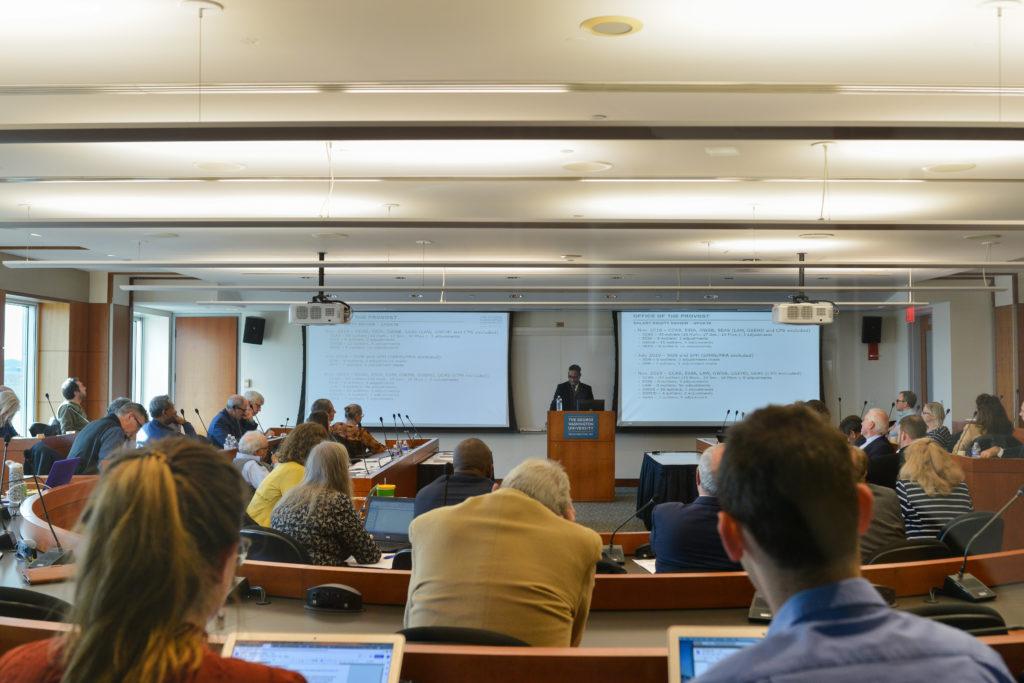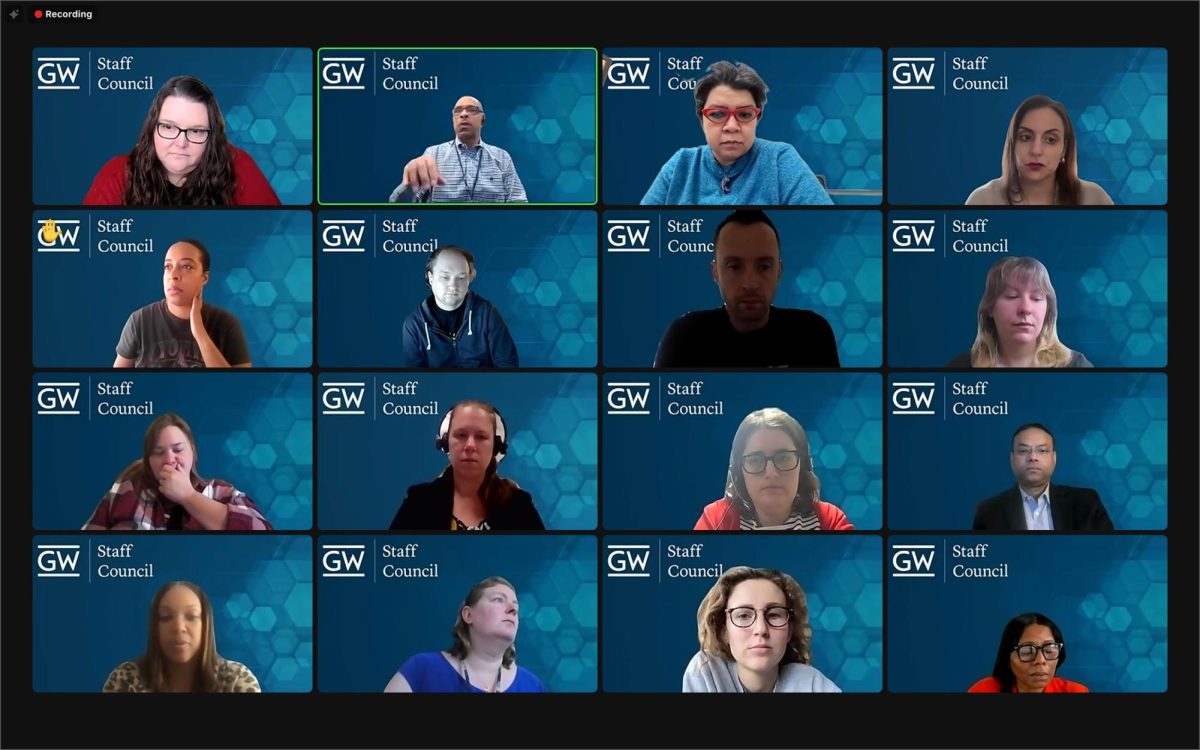Faculty senators will debate a resolution this spring calling on officials to reveal why GW’s ethics and privacy office didn’t prohibit a controversial project that tracked community members’ locations without their knowledge.
Jamie Cohen-Cole, an associate professor of American studies who introduced the resolution at the last Faculty Senate meeting, requested that officials provide senators with a copy of the contract GW signed with Degree Analytics to conduct the project, which leveraged GW’s WiFi access points to track community members’ locations. Cohen-Cole’s resolution asks for officials to disclose which employees had access to the location data to assure the senate “about the extent to which personal information was secure and distribution limited.”
Interim University President Mark Wrighton apologized earlier this month after becoming aware of the project, which was conducted before his arrival at GW. The resolution includes a resolving clause commending Wrighton’s apology.
“The University deeply regrets that this project took place without proper review or safeguards, and we will work to make sure that such an incident is not repeated,” Wrighton wrote in his apology.
But faculty senators have cited the incident as evidence of a larger mismatch between the University’s academic and financial arms, noting that GW Information Technology – which managed the project – and the Office of Ethics, Compliance and Privacy both fall under the purview of the chief financial officer. Officials had opened the privacy office in January 2019.
Earlier this month, University spokesperson Crystal Nosal declined to say which officials oversaw and approved the data collection effort, why officials didn’t issue an announcement about the project until now and whether the privacy office was aware of the data collection.
“I appreciate President Wrighton’s commitment to reconsidering whether the [ethics, compliance and privacy office], the division of IT or both should report to the CFO,” Cohen-Cole said in an email. “In addition, I was glad to see that President Wrighton and Provost [Chris] Bracey responded promptly to the ethical issues raised by the location tracking program when they learned of its existence.”
In his apology, Wrighton said Bracey will convene a committee of students, faculty and staff to define GW’s policies on the use of the University community’s data. The committee will be led by Senior Vice Provost for Academic Affairs Terry Murphy and interim Chief Technology Officer Jared Johnson.
Cohen-Cole’s resolution, which senators referred to the educational policy and technology committee, asks Murphy and Johnson to consider holding mandatory ethics training for employees who were aware of the program and did not raise concerns. The resolution also requests officials to disclose to the GW community a list of “personally identifying descriptor characteristics” that they collected in conjunction with location data.
Sarah Wagner and Irene Foster, the co-chairs of the educational policy and technology committee, did not return a request for comment.
Eric Grynaviski, the chair of the committee’s technology subcommittee, said faculty senators found that officials collected descriptors like gender, residence hall, dining plan type and if they were involved in Greek life at the senate’s last meeting, expressing concerns with GW’s institutional hierarchy that grants Executive Vice President and CFO Mark Diaz oversight for both the ethics office and the IT department.
“There’s no coordinated or organized infrastructure that would allow for the detection of problems or discussions about the usefulness of programs or for making sure that the educational or research mission of the University is guiding the technology enterprise,” Grynaviski said at the meeting.
Officials reorganized GW’s technology offices in 2020 as part of efforts to cut costs during the pandemic and shift administrative functions to a shared-services model. The University consolidated some technology functions under Diaz that were previously managed through Libraries and Academic Innovation or individual schools – which both fall under the provost’s purview.
“If you asked me as someone who’s been actively involved in the IT effort for over 40 years at GW, this really started with the decision to shift academic IT out from under the provost and over to the shop of the CFO,” Phil Wirtz, a faculty senator and former chair of the senate’s education policy and technology committee, said at the meeting.






